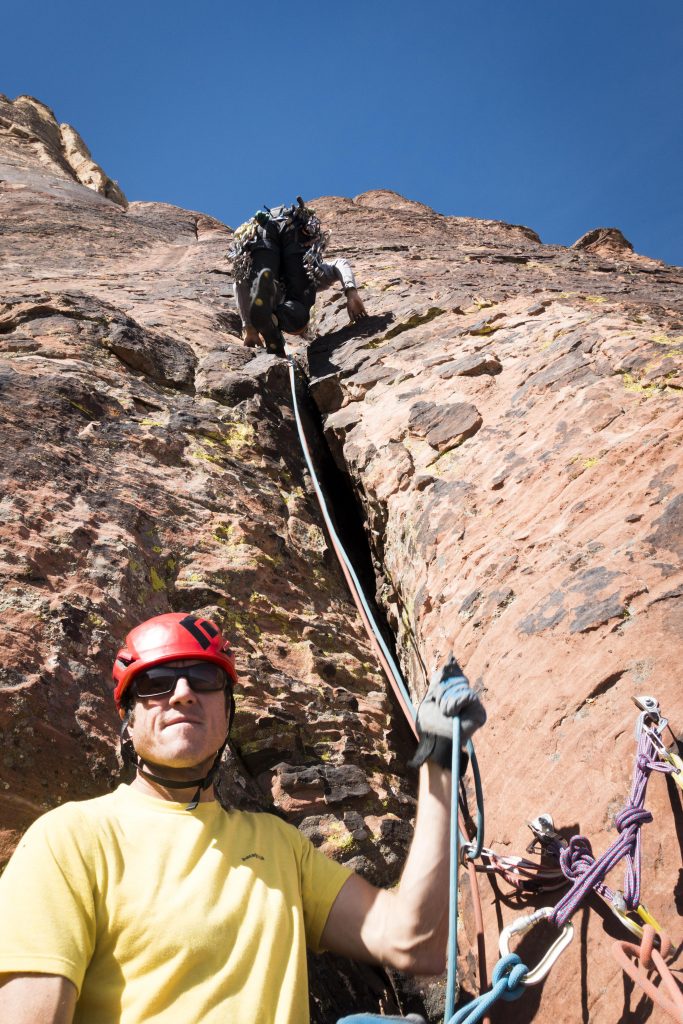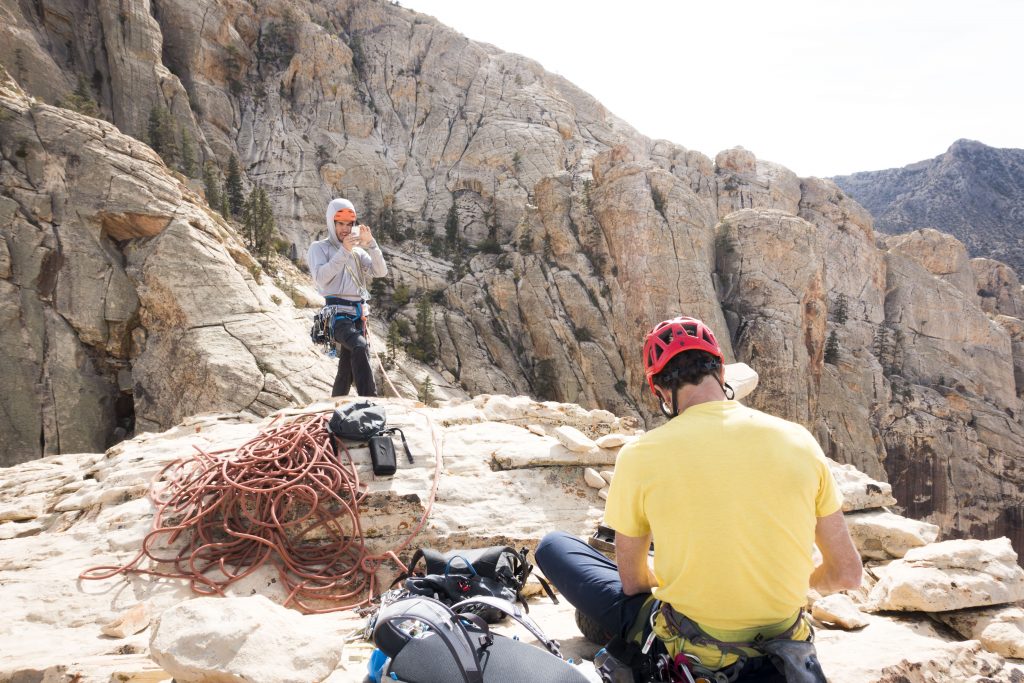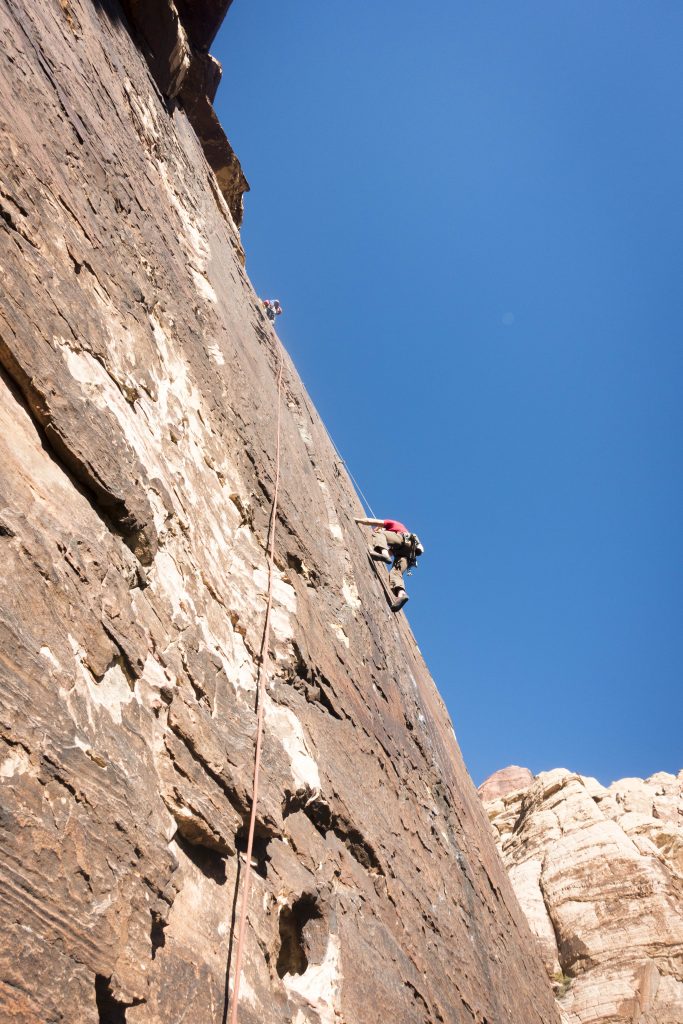AMGA Rock Guide Exam for Nelson Day
The Rock Guide Exam is the last and most difficult exam in the AMGA rock program. It also signifies a greatly desired standard in the rock guiding industry. My aspirations and motivations in taking this exam were both personal and professional.

Instructor Vince Anderson belaying on day 4 of the Rock Guide Exam
On a professional level, the exam was an excellent source of feedback and direct exposure to excellent guidance instruction via the AMGA Instructor team. I am continually impressed with the high level of understanding and ability among the members of the instructor team, and this exam offered 5 long days of full exposure to the instructor team’s trained eye. All this led to loads of helpful feedback from the team including “things done right” and “things to be improved on”. A great deal of emphasis was placed on the end of day debrief. I found these debrief sessions to be of excellent value for professional development. Some advice I received included: placing a higher emphasis on guiding clients rather than making a beautiful anchor station; giving clients the best real estate at anchors during climbing and rappelling; discussions on the risk management hierarchy when going down from a route; having clients more involved in chores to be done during transitions; discussions on short roping anchoring (single point anchors vs. two piece anchors); and focusing on client comfort and care (getting clients down from a climb as quickly as possible; focus on lowering when possible). All of this advice was provided in a very engaging manner and introduced as discussions during debrief sessions.

summit of texas flower tower on day 4 rock guide exam
As far as personal development, I hoped to learn more tips, tricks, and methods to provide clients and guides working with me a larger pool of tools to draw from. The AMGA Instructor team didn’t fail to bring these to the table as usual. However, as the exam progressed, I quickly found a new personal area of development and growth opportunity. The critical nature of the test, high expectations of personal performance generated by my perfectionist type personality, and performance anxiety in general added a lot of stress to my test environment. This quickly became the crux of the exam for me. When I mentioned the stress to the instructor team, the feedback was quite helpful. Slow down to smooth out movements when setting up technical systems. My tendency is to rush on a long climbing day, and combined with nervousness, this makes for awkward movement and inefficient use of resources (ignoring clients or their ability to assist with transitions). Avoid tunnel vision during approaches and descents (keep soft eyes focus and awareness of surroundings high), and try to guide in areas I haven’t guided in before to develop on-sight guiding abilities. I’ve noticed a tendency in guiding is to return with clients again and again to areas that worked well in the past. While this ensures a good experience for clients, it doesn’t provide guiding challenges to help me develop my abilities further, and it doesn’t expand my knowledge of the area or options for crowded days. These guiding challenges are experiences that play a major role in personal development outside of the AMGA classroom or exam environment. I am greatly appreciative to the AMGA for their instruction and to Osprey for sponsoring this excellent exam and learning opportunity! Thank you! I’m super excited to have passed this rock guide exam, and excited about my future in guiding! I can now say I am the highest certified guide in all of Joshua Tree!

Instructor Rob Hess following on day 1 of rock guide exam
October 20, 2016. Posted by: nelsonday